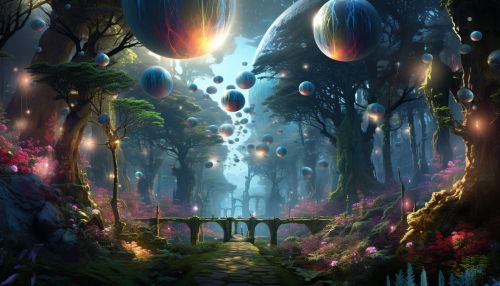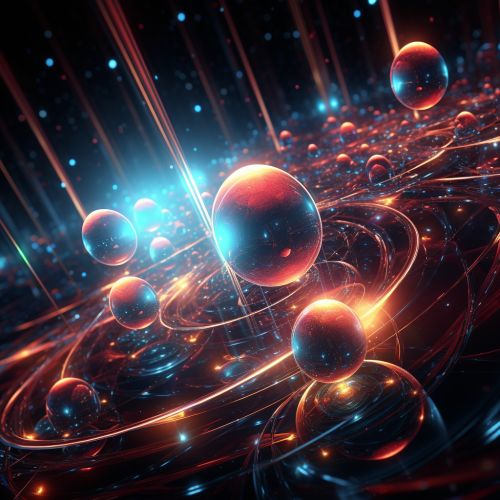The Physics of Quantum Mechanics in Parallel Universes
Introduction
Quantum mechanics is a fundamental theory in physics that provides a description of the physical properties of nature at the scale of atoms and subatomic particles. It is the foundation of all quantum physics including quantum chemistry, quantum field theory, quantum technology, and quantum information science. The theory of quantum mechanics also implies that it is possible to have parallel universes, an idea which is in the realm of quantum cosmology.
Quantum Mechanics
Quantum mechanics is a branch of physics that deals with phenomena on a very small scale, such as molecules, atoms, and subatomic particles like electrons, protons, and photons. It is a mathematical framework that is fundamentally different from classical physics, which describes the universe as we experience it in everyday life. Quantum mechanics introduces concepts such as wave-particle duality, superposition, and entanglement, which challenge our classical understanding of the world.


Parallel Universes
The concept of parallel universes, also known as the multiverse theory, is a hypothetical group of multiple universes including the universe in which we live. Together, these universes comprise everything that exists: the entirety of space, time, matter, energy, information, and the physical laws and constants that describe them. The various universes within the multiverse are also called "parallel" or "alternate" universes.
Quantum Mechanics and Parallel Universes
The connection between quantum mechanics and parallel universes can be found in the interpretation of quantum mechanics. The most popular interpretation is the Copenhagen interpretation, which asserts that a quantum particle doesn't exist in one state or another, but in all of its possible states at once. It's only when we observe its state that a quantum particle is essentially forced to choose one probability, and that's the state that we observe. Since all other possibilities for the state of that particle — all other universes — are not perceivable, this interpretation has the effect of making quantum mechanics deterministic, as it eliminates randomness from the equation.


However, another interpretation, known as the Many-Worlds Interpretation, posits that each of these possible states of the quantum particle come to be in a different universe. That is, there is a universe for each possible state of the quantum particle. This interpretation takes the randomness out of quantum mechanics and replaces it with a deterministic view of the universe, where everything that can happen does happen in some universe.
Implications of Quantum Mechanics in Parallel Universes
The implications of quantum mechanics in parallel universes are profound. If the Many-Worlds Interpretation is correct, then we are living in a multiverse – a vast ensemble of universes, each representing an alternative reality. Each time a quantum measurement is made, the universe is split into multiple copies, each one corresponding to a different possible outcome of the measurement.


This interpretation has been used to explain the results of the famous double-slit experiment, where light behaves both as a particle and a wave. According to the Many-Worlds Interpretation, each possible path the light could take corresponds to a different universe.
Conclusion
The physics of quantum mechanics in parallel universes is a fascinating and complex field. While the idea of parallel universes may seem like science fiction, it is a serious and valid interpretation of the mathematical realities of quantum mechanics. As our understanding of quantum mechanics continues to deepen, the possibility of parallel universes will continue to intrigue scientists and laypeople alike.


